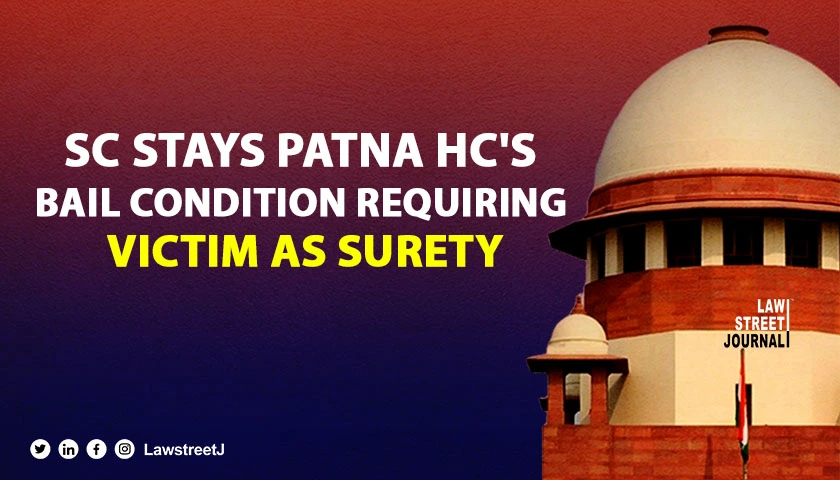New Delhi: The Supreme Court of India has delivered a significant order staying an unusual bail condition imposed by the Patna High Court and ordering the release of a petitioner who had been languishing in jail despite being granted bail.
The Supreme Court expressed dismay over an absurd bail condition imposed by the Patna High Court, which had granted bail to an accused on the condition that the victim of the alleged crime should stand as his surety. The apex court lamented how this impractical condition had resulted in the petitioner languishing in jail for nearly a year, despite being ordered released on bail.
The Vacation Bench, comprising Justices J.B. Pardiwala and Ujjal Bhuyan, was hearing a Special Leave Petition (Criminal) arising from an impugned judgment and order dated January 12, 2024, passed by the High Court of Judicature at Patna.
The court noted that the petitioner had been granted bail by the High Court on July 25, 2023, in connection with an FIR registered on January 26, 2023, for offenses under Section 366(A) read with Section 34 of the Indian Penal Code. However, the High Court had imposed a condition that the surety for the bail should be the victim of the alleged crime.
The Supreme Court observed that this condition was very unusual and absurd, making it practically impossible for the petitioner to comply. As a result, despite being granted bail in July 2023, the petitioner was still in jail at the time of the hearing.
Expressing concern over the situation, the court stated: It is very unfortunate to note that because of such absurd condition imposed by the High Court, the petitioner, although ordered to be released on bail way back in July 2023, yet is still languishing in jail.
In conclusion, the Supreme Court issued notice, returnable in four weeks, and stayed the operation of the condition imposed by the High Court regarding the victim standing as surety. The court further ordered the petitioners release on bail, subject to terms and conditions that the trial court may deem fit to impose.











